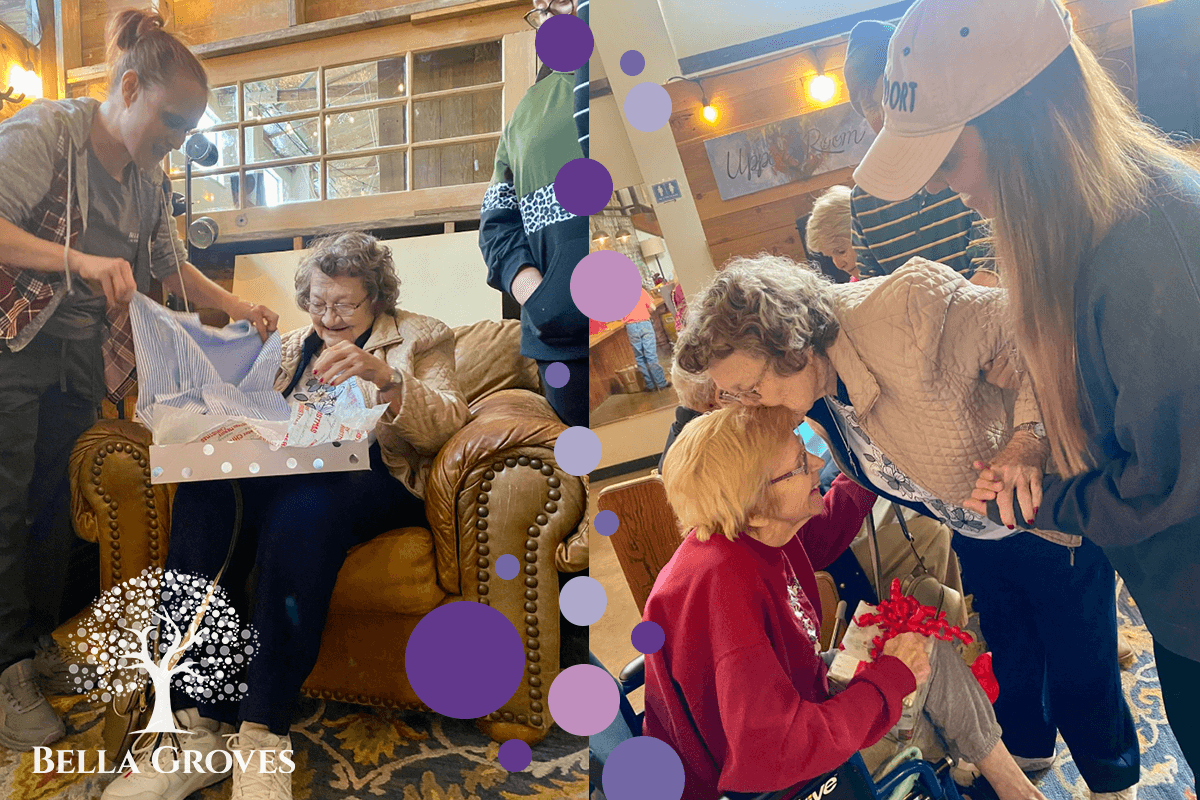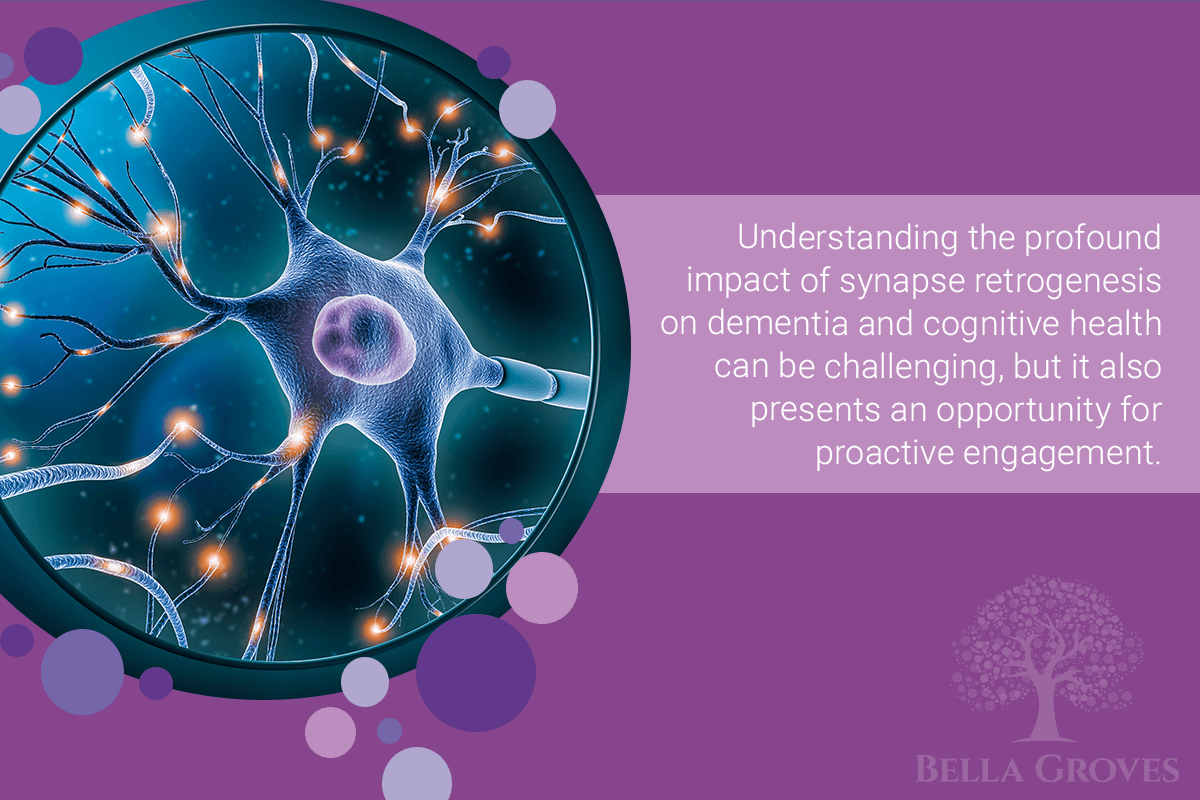
Volunteering and Dementia Care: How Those Living with Dementia Can Give Back
In a world that often underestimates the capabilities of individuals living with dementia, the notion of volunteering and giving back may seem like a far-fetched dream. It challenges a societal concept that older adults, especially those with cognitive conditions, can only be the recipients of care, never its givers.
But the truth is both powerful and heartwarming—people living with dementia have a wealth of love, time, and spirit to share. Bella Groves is dedicated to providing meaningful opportunities and exceptional memory care to individuals and families in San Antonio.
We believe that when those living with dementia have the opportunity to give back, it reflects the resilience and potential of the human spirit, even in the diagnosis of dementia.
Uncovering the Potentials of Volunteering
Social and Cognitive Gains
Volunteering and participating in organized social activities where individuals commit their time to helping others offer numerous benefits that can be particularly beneficial for individuals with dementia.
Engaging in structured, beneficial, and socially rewarding activities can stimulate cognitive functions, challenge memory, and foster a sense of purpose. Studies have shown that regular participation in such activities can significantly slow cognitive decline and lead to better overall mental health.
An Intrinsic Reward System
For those living with dementia, volunteering brings a sense of accomplishment and pride. It turns the narrative from helplessness to one where they are contributing members of society, actively engaging with their community, and helping others. This narrative builds a positive self-image and is instrumental in maintaining a high quality of life and sustaining cognitive functions.
Opportunities at Every Level
Virtual Volunteering
The digital era has opened up vast avenues for individuals to contribute from the comfort of their homes. Virtual volunteering opportunities include activities like online peer support for others with similar conditions, video editing, or even serving as a tech-savvy advisor for a community group. These activities can be tailored to the skill set and interests of the individual, making them not only enriching but also fun and fulfilling.
Local and Immediate
In-person volunteering remains a powerful way to make immediate and tangible impacts on local communities. Door-to-door charity drives, reading to children at libraries, or even participating in local gardening projects can be engaging and rewarding for individuals with dementia.
These activities help maintain a sense of belonging and community, which are critical elements in caring for those with the condition.
Tailor-Made Programs
Several organizations around the world have developed specialized volunteer programs catering to the unique needs and abilities of individuals with dementia. These initiatives include art therapy programs such as painting or drawing, where the works of art can be donated for charitable causes or community service projects that align with the participants’ skills and capabilities.
Ripple Effects on Others
Respite Care and Support Networks
Volunteering can offer care partners a much-needed respite. It allows them to take a break and focus on their own well-being while their loved ones are actively working on their community projects. This respite care, whether for a few hours a week or during specific group activities, can reduce stress levels and prevent burnout, which is a common issue among caregivers.
Strengthening Bonds Through Engagement
Community engagement through volunteering amplifies the general public’s understanding and awareness of dementia. It challenges the stigma and misconceptions associated with the condition, paving the way for a more inclusive and compassionate society.
It also fosters stronger relationships between those living with dementia, their care partners, and the communities they serve, creating a network of mutual support and respect.
Building Inclusive Environments
Dementia-Friendly Practices
It is crucial to create volunteering environments that are sensitive to the needs of those with dementia. This involves clear communication, the provision of adequate support, and the elimination of any barriers that might hinder meaningful engagement. Organizations need to train their staff and volunteers in dementia-friendly practices to ensure that everyone feels welcome and valued.
At Bella Groves, our Director of Dementia Programs (DDP) coordinated for residents to get presents for their fellow Bella Groves friends and neighbors. These weren’t random gifts. Families (also in attendance) assisted their loved ones in selecting and acquiring those gifts.
Our care team members were also in attendance. Caregivers of most assisted living communities are seldom out and about with residents in the greater community. Ours attend quite frequently because our high staffing ratio allows for this to happen, and our “activity” program is carried out by caregivers a good majority of the time (guided by our DDP).
As Bella Groves CEO and Co-Founder shares, “We don’t GIVE residents a sense of purpose. No senior living team does. We simply believe in their personhood so deeply that we support the re-activation of THEIR innate purpose. With a little support, a [person living with dementia] can plan. They can look forward to things. They can enjoy the look of joy on someone’s face after opening their gift. They can give and not just receive. They CAN. They CAN. They CAN.”
Public Awareness and Education
Public awareness campaigns and educational programs can help communities understand the potential that individuals with dementia hold and how they can be effectively supported to contribute. By sharing stories and highlighting successful volunteer initiatives involving those with dementia, the broader public can be encouraged to take part in the movement toward inclusion.
The act of volunteering has a profound impact on the lives of those living with dementia. It offers them a chance to give back, find purpose, and engage with their communities. This engagement doesn’t just stop with the volunteers themselves—it extends to caregivers, families, and the public at large, building a more compassionate society.
Bella Groves provides memory care in San Antonio that exceeds expectations. Contact our care team today to learn more about our community.


